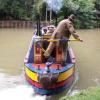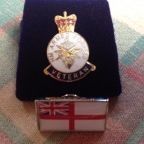Leaderboard
Popular Content
Showing content with the highest reputation on 15/08/16 in all areas
-
It seems to me that the only people who consistently complain about C&ART changing 14 day moorings in busy places to 24 or 48 hour moorings are those who selfishly want to leave their boat blocking popular places so that they can have easy access to public transport links home. There are plenty of places around the system where boats can be left for 14 days, and there are such things as taxis, or hire cars, which is what we have used on many occassions.3 points
-
Here we are chaps;- Source NBTA To paul.oatway@wiltshire.gov.uk easternhighways@wiltshire.gov.uk cc matthew.symonds@canalrivertrust.org.uk mark.evans@canalrivertrust.org.uk Dear Cllr Oatway Proposal to restrict parking in Wilcot This is a formal complaint in line with your complaints procedure. The minutes of Wilcot and Huish (with Oare) Parish Council for 25th May 2016 state at paragraph 16/31 that a meeting was held with the Highways Department on 23rd May 2016 and that: 16/31 To receive an update on parking next to the canal at Wilcot. Cllr Nix reported that a productive meeting was held on 23 May 2016 between Parish Council, residents and a representative from Wiltshire Council Highways department. The Estate manager has also been involved. The proposal is to build up the bank along the north side of the road down to Cannings Cottage, and allow the hedge to grow over it but not too far to obstruct the carriage way. Some parking bays will be created on the wider section to avoid pushing the parking problem elsewhere in the village. The Estate have agreed to carry out the proposed works, but they do not wish to use their own vehicles. It was proposed that Parish Council hire a digger that they can use (see item 16/25). Another local landowner has offered to donate hard-core to build up the bank. The highways representative has said he is happy with this proposal; it was suggested that we obtain written confirmation for our records. This will have a significant adverse effect on boat dwellers. It will also have an adverse effect on leisure boaters, anglers and other canal users such as walkers, all of whom park their cars in the road to Cannings Cottage in Wilcot in connection with their use of the Kennet and Avon Canal. The meeting on 23rd May with the Highways Department was held in secret. Boaters, anglers and other canal users were not invited and their views were not sought by any other method. This is despite the fact that boat dwellers such as myself are residents of Wilcot while their boats are moored there for 14 days. Wilcot is one of the few places on the Kennet and Avon Canal east of Devizes where the water is deep enough to moor a boat close to the bank without having to put a plank across a gap of six feet or more. It is also one of the few places where it is possible to get a vehicle close enough to a boat to load and offload coal, wood or gas bottles safely. Boat dwellers also park their vehicles in the road to Cannings Cottage because it is away from most of the houses in the village. Wilcot residents have made it known that they are opposed to boat dwellers parking their vehicles in other roads in the village and have done so very forcefully, putting fake parking notices on cars and damaging vehicles. One Wilcot resident was prosecuted for damaging a car belonging to a boat dweller (the boater's name can be provided on request). This is despite the vehicles being parked on an unrestricted public highway without obstructing traffic and with the correct tax and insurance. Because of this harassment, boat dwellers now only park their vehicles in the road to Cannings Cottage. It is clear that the move to restrict parking in this road is simply a device to clear boat dwellers out of Wilcot altogether. Although many boat dwellers do not own cars, those who do, need them to get to work and/or take their children to school in an area where public transport is scarce and school transport cannot be used by children who travel to school from a different place every 14 days. Observation suggests that an average of ten cars are parked in the road to Cannings Cottage on most days and sometimes more at weekends. The Parish Council minutes do not refer to any traffic surveys carried out in the area. The provision of “some parking bays” will not meet this need unless “some” means in excess of ten. Unless this is done, narrowing the road verge will have the effect of pushing the majority of the canal users who need to park vehicles in Wilcot out of this road and into parking on the other roads in the village. Notwithstanding the fact that boat dwellers object in the strongest of terms to being labelled a “problem”, this is likely to result in significantly increased levels of vandalism and damage to vehicles parked in Wilcot regardless of who they belong to. It is also likely to result in increased harassment of and hostility to boat dwellers locally. This would be a significant retrograde step considering the progress made to dispel the hostility to boat dwellers and build better relationships between canal users and canalside villages that was achieved by the meetings that took place between Wilcot Parish Council, Pewsey Community Area Partnership, Canal & River Trust and boat dwellers over the period 2013 to 2015. To remedy my complaint please ensure that: 1. Sufficient parking space is made available in Wilcot to accommodate the average number of canal users' vehicles as stated above. 2. It is made clear that the harassment of anyone who parks a legal, taxed vehicle without obstructing the highway is a criminal offence. 3. It is made clear that vandalism of and damage to vehicles are criminal offences. Thank you. I look forward to your reply. Yours sincerely,2 points
-
I am with phil on this one, i don't do cold and can honestly say i have never had a cold morning. It is very easy to keep your stove in overnight and my wife is convinced that the dog will expire due to the heat in the boat.1 point
-
By refilling the bottle you are depriving them on the profit they would have made on 15 years of exchanges it would seem that you along with others think it is OK if the whole country each had a bottle but never used it for it's intended purpose ie an exchange gas vessel, how would that work? Phil1 point
-
How about boaters applying a bit of common sense and keeping the boat well forward? It doesn't take much. Dave1 point
-
Could I be Mr Decomber. Father Christmas in the nud. I could wear black wellies. And a smile.1 point
-
This post cannot be displayed because it is in a forum which requires at least 10 posts to view.
-
To be slightly pedantic, early OwnerShips with names beginning with 'S' were built (hull and fitout) by Pat Buckle with, usually, Calcutt marinised BMC 1.8 engines. Boats with names beginning with 'O' came from elsewhere (often second hand) and had a variety of engines (BMC 1500 and Mitsubishi spring to mind). Later, Ownerships started using Reeves hulls (as used by many hire fleets at the time) with fit outs by John Milliburn still retaining Calcutt/BMC 1800 engines and 'S' names. Later 'S' names were dropped in favour of canal place names. Later still, Beta Marine engines were used instead of Calcutt/BMC but these were fairly quickly dropped in favour of Nanni engines using the same Kubota base unit due to two issues which Beta took a long time to resolve. The main reason for moving away from BMC was a perceived market demand for 'Travelpower' and bow thrusters which could be supplied as part of the engine package. From memory, here are some of the issues/feedback I can recall from about 12 years ago with regard to BMC 1800 replacement on OwnerShips craft. The company view was that most engines then it use in hire fleets were suitable, including new Calcutt/BMC units. However, replacement with rebuilt or refurbished units was seen as a false enconomy - - Replacement with rebuilt/refurbished units - this was not recommended by Ownerships (or Calcutt) due to a history of major early engine failures. - Replacement with new Calcutt/BMC - Ok but owners were encouraged to consider having the following checked and replaced if needed - engine mountings gearbox stern gear including aquadrive wiring/hoses exhaust cooling system - Replacement by Nanni/Beta - most owners went with Beta ... As well as the above, owners were warned that engine mountings needed replacing and cooling/exhaust rerouting. Also replacement of the engine wiring and panel. Experience had shown that Pat Buckle and some of the very early Reeves hulls needed skin tank modification even if the replacement unit was notionally the same power. Calcutt used to do a retrofit to alter the skin tanks by welding a new tank onto the outside of the swim. Pat Buckle boats had a wet exhaust system but many had been converted to 'hospital silencer'. The few not converted were advised that it was better to convert to a dry system for replacement. Isuzu - A few owners went for Isuzu which was slightly cheaper than Nanni/Beta. The general advice given to owners at the time was that known problems existed with alternator/alternator bracket failure otherwise the advice was the same for Nanni/Beta. With regard to owner feedback, after installing a new engine, most reported that it was quieter with less vibration. This is perhaps to be expected! Less expected is that most who had experience of several craft found little difference between new BMC and other engines (I am talking here about volunteers that would move OwnerShips boats). Owners moving from wet exhaust BMC to a hospital silencer found the new installation noisier. Some owners reported heavier fuel consumption from replacement Beta/Nanni engines compared to older BMC units. Investigation of filling records showed in increase of about 20%. Some owners reported a lack of hot water (possibly due to higher temperature thermostats (82%?) fitted in the BMC's)... Some owners reported cooling problems due to not having the skin tank enlarged. These were sorted by Calcutt without engine removal. Most owners reported better charging (as you would expect). ***Edited to remove extraneous blank lines.1 point
-
I think you are probably correct there, but it probably has something to with the fact that many thousands of them have been fitted to boats over the past forty years, wheras most of the others are, by comparison, much newer with much lower production levels.1 point
-
Thanks for the explanation Alan, most of that must have passed me by. I must admit i have probably payed less attention to the issue, particularly as I tend to stop taking much interest in threads when (some) people start complaining about C&ART enforcing mooring periods. I know from experience how difficult it was becoming to get a mooring in some popular places after 3pm and that it has got a lot easier since the maximim mooring period has been reduced in those places. From my perspective it is a welcome improvement to be able to get a mooring at 6pm after a proper days cruising.1 point
-
It shouldn't be odd schemes it should be blanket over the whole network. Its not the £20 that will being in money but the £6 second night that should. Thames landowners make money on their charges, A large part of SRB moorings business is coleecting fees for landowners round the Henley area, So it can be done. Better might be £6 first night second night free........ I know you don't agree but having boated on the Thames for years I do feel its a missed oppotunity by CRT charging for VM.1 point
-
Really ALL VMs should be charged for as they are on other navigations. Problem is cheapskate whinging boaters not willing to put their hands in their pockets. First night free Second night £6 Third night and beyond £20 a night. The charge has to be as high as £20 to make it uneconomical to use a VM as your "home base". There are still many miles of towpath available for 14day stays. As for is there a need, yes there is, CRT need cash to get on with repairs and dredging, the canals round here are in a worse state than they were 20+ years ago and getting worse.1 point
-
I am complaining about CRT having invested some considerable effort, including the major input of a voluntary group. to draft a very sensible framework that requires changes to be evidence based, signing it off as an "approved process" and then not always following that framework and approved process. You are however wrong in your suggestion above, because I am one who is objecting to them making changes where evidence has not been gathered, and I do not fall into the category of "those who selfishly want to leave their boat blocking popular places so that they can have easy access to public transport links home". You can, incidentally, only "block a popular place" by enough people doing it to fill it up. If people are doing this, then following the agreed framework will establish that, and provide the evidence that shorter stay times would be beneficial. However if following he agreed framework establishes that in fact a popular place generally never does get fully filled up, (as happened when it was finally done for Berkhamsted ad Marsworth), then what can be the justification for restricting stay times?1 point
-
If you are saying that moorings got switched from 14 days to 48 hours then back again after complaints, without the agreed Framework having been followed, I can't see how that can be called "a good thing", unless wasting time and money to erect one set of signs only to revert them can be called "a good thing". (Or perhaps I am misunderstanding your point?). CRT now has an agreed Framework for all such changes, evolved with the help of the Navigation advisory Group, (NAG), and signed off as an "approved process" by Richard Parry. In essence this require that changes to mooring stay times are evidence based, not just because someone sat in an office somewhere becomes persuaded that it is a good idea. To me "evidence based" is the key, and should help stop the nonsense of changes being made, only to quickly be altered again. I would urge anybody unhappy with changes made anywhere, (not just in Birmingham), and who believes CRT have not followed their own agreed procedures, to register a complaint, rather than just accepting as fait accompli CRT saying one thing and doing another. For the avoidance of doubt, I am not commenting on whether changes made in Birmingham may be sensible or not, although of course if they are the should have anyway passed the tests required by the agreed Framework, with the advantage that an agreed method of working had actually been followed, rather than ignored, (if indeed it has bee ignored - has anybody any any evidence that the Framework was followed, please?) Any chance anybody can provide photos please, (now or maybe in previous posts around this topic)?1 point
-
Seems entirely reasonable to me. Especially the bit about mooring considerately. Birmingham is a prime example, there are limited moorings outside the "badlands zone" and you you often see a boat arrive and plonk itself in the middle of a long space preventing anyone else from using it. A lesser degree of evil is to fail to use the same bollard as the next boat thus wasting a lot of space that somebody else could have used. My pet hate! Personally in places like B'ham I'd like to see mooring wardens getting people to moor considerately.1 point
-
This is a pulley from a BMC 1.5/1.8. The key feature is that it is in two parts, separated by a thick rubber section. This allows the outer ring to damp out oscillations in the crankshaft by being connected through a flexible element. Opinions differ on if this is necessary, I'm inclined towards thinking that it is This is the problem with these pulleys: They develop a crack along the keyway. Ditchy's is worse than this with a piece falling out. As this is the surface that the oil seal runs on, it makes a terrible mess Now, if pulleys were easy to find, I would scrap this one. But they are nigh on unobtainable. I have just stripped the pulleys from three engines, and only one is OK So, we need a pragmatic solution, which is a Speed Sleeve: It's a precision made, thin walled sleeve intended to renew sealing surfaces. In this case, it will seal the crack and stop oil seeping out. It will also put a strengthening hoop around the spigot which will help hold it together. The sleeves come as a kit with a fitting tool: Which you put over the sleeve and fit it with a hammer: This is the fitted sleeve: And it's too long, and hardened, so it needs to be ground off: And there we are: Richard1 point
-
I can't help with the photoshoot location I'm afraid, but I have produced a useful Venn diagram illustrating the set of people who own narrowboats and the set of people who own £120 T-shirts featuring cartoon lumberjacks: OO Best of luck, and if you only manage to find people who want to charge you ten times what you might regard as a reasonable price, well...1 point
-
What an amazing load of bullshit and twaddle on this thread. I am reminded of the folks who say "ooh, you can't do that, it's against a health and safety" without having a clue what they are on about, never having read any H&S legislation, or the folks who say "you can't do that, it would invalidate your insurance" without having a clue what terms and conditions are extant in the other person's insurance policy. It is also like the folks who say "OMG you can't possibly do any work on gas in your house, you'll go straight to prison" - of course they have never read the GSIUR law. It may well be unlawful for the garage to sell you gas into a cylinder. It certainly isn't theft (assuming you pay for it!) but unless someone can cite a specific paragraph of a specific law that makes it "unlawful" to refill a cylinder, I remain firmly of the belief that it is a breach of contract for which Calor (can't "prosecute" as its not a criminal matter) could sue and in all probability merely have their cylinder returned. Although how they would ever know remains a mystery to me.1 point
-
David or 'Blaggers as we affectionately called him was my English teacher at Roade secondary school.He would often regale us and act out funny anecdotes and stories from the cut. He always gave heaps of encouragement and said I could write a book,something I later went on to do. Thanks 'Blaggers' and RIP1 point
-
I have several bottles for caravan and boat and a couple spare. Some were found in t'cut, a couple inherited and a couple came with caravan. I've swapped for different sizes and gases over the years. I've never had an agreement or paid for a bottle. Is the "contract" refreshed ton each refill? But I just go and swap a bottle, no paperwork involved. So, danger aside, what contract would I be breaking? How many of you have an original contract, how many in the same position as me?1 point
This leaderboard is set to London/GMT+01:00













